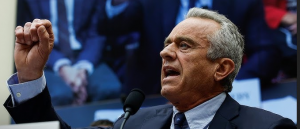Vice President Kamala Harris's strong progressive stance during the 2024 election failed to resonate with a significant portion of voters, leading to Donald Trump's victory and encapsulating the risks of focusing primarily on progressive ideals in a polarized political environment.
Kamala Harris's Campaign Aftermath: The Lessons from a Progressive Agenda

Kamala Harris's Campaign Aftermath: The Lessons from a Progressive Agenda
In reflecting on the 2024 election, Vice President Kamala Harris faces scrutiny over her progressive campaign, which may have cost her electoral support and lessons for the Democratic Party.
In the aftermath of the 2024 election, Vice President Kamala Harris is experiencing significant introspection following a campaign that embraced progressive policies and ideologies. Focused on social justice and climate initiatives, Harris's strategy failed to connect with a broader electorate, contributing to Donald Trump's return to the presidency. This situation embodies the prevailing notion that pursuing progressive agendas may lead to political setbacks, often summarized by the phrase "Go Woke and Go Broke."
Harris's campaign passionately championed issues that energized her core supporters, including climate action, expanded social safety nets, and reforms in policing and voting rights. However, these progressive measures did not resonate with many moderates and independents who were looking for pragmatic, centrist leadership in a turbulent economic landscape. Numerous voters conveyed apprehensions that her policies leaned too far left, moving away from the more pragmatic economic considerations they prioritized.
Criticism of Harris’s approach highlighted a notable disconnect between her focus on progressive values and the pressing economic realities faced by voters. While her support for climate change action and social justice initiatives was celebrated within her base, those concerned about economic issues like inflation and energy expenses remained skeptical. Opponents scrutinized the practicality and financial implications of the ambitious measures she proposed, further accentuating the critiques about her campaign’s misalignment with public priorities.
The endorsement of strongly "woke" policies alienated crucial voter demographics, particularly among working-class individuals and those in suburban areas. Critics contended that the emphasis on progressive ideals often overshadowed vital economic issues such as job growth, inflation, and security—issues that resonated more directly with the electorate. Consequently, Harris's campaign struggled to gain traction among swing voters, essential for electoral success.
For Harris, the election results serve as a potent lesson about the divided nature of American public sentiments towards progressive social policies. The adage "Go Woke and Go Broke" has frequently described instances where businesses or public figures have faced setbacks after adopting progressive stances. In Harris’s context, it symbolizes the limited appeal of her campaign among a more diverse electorate, reflecting the challenges inherent to strong progressive alignment.
As the Democratic Party evaluates the outcome of the election, Harris’s experience might serve as a cautionary tale. There is an ongoing discussion within the party about the necessity of finding a balance between upholding progressive values and addressing the broader concerns of the electorate. For now, Harris's narrative encapsulates the complex reality of her campaign, illustrating the limitations of a purely progressive approach in a polarized political atmosphere.
Harris's campaign passionately championed issues that energized her core supporters, including climate action, expanded social safety nets, and reforms in policing and voting rights. However, these progressive measures did not resonate with many moderates and independents who were looking for pragmatic, centrist leadership in a turbulent economic landscape. Numerous voters conveyed apprehensions that her policies leaned too far left, moving away from the more pragmatic economic considerations they prioritized.
Criticism of Harris’s approach highlighted a notable disconnect between her focus on progressive values and the pressing economic realities faced by voters. While her support for climate change action and social justice initiatives was celebrated within her base, those concerned about economic issues like inflation and energy expenses remained skeptical. Opponents scrutinized the practicality and financial implications of the ambitious measures she proposed, further accentuating the critiques about her campaign’s misalignment with public priorities.
The endorsement of strongly "woke" policies alienated crucial voter demographics, particularly among working-class individuals and those in suburban areas. Critics contended that the emphasis on progressive ideals often overshadowed vital economic issues such as job growth, inflation, and security—issues that resonated more directly with the electorate. Consequently, Harris's campaign struggled to gain traction among swing voters, essential for electoral success.
For Harris, the election results serve as a potent lesson about the divided nature of American public sentiments towards progressive social policies. The adage "Go Woke and Go Broke" has frequently described instances where businesses or public figures have faced setbacks after adopting progressive stances. In Harris’s context, it symbolizes the limited appeal of her campaign among a more diverse electorate, reflecting the challenges inherent to strong progressive alignment.
As the Democratic Party evaluates the outcome of the election, Harris’s experience might serve as a cautionary tale. There is an ongoing discussion within the party about the necessity of finding a balance between upholding progressive values and addressing the broader concerns of the electorate. For now, Harris's narrative encapsulates the complex reality of her campaign, illustrating the limitations of a purely progressive approach in a polarized political atmosphere.





















